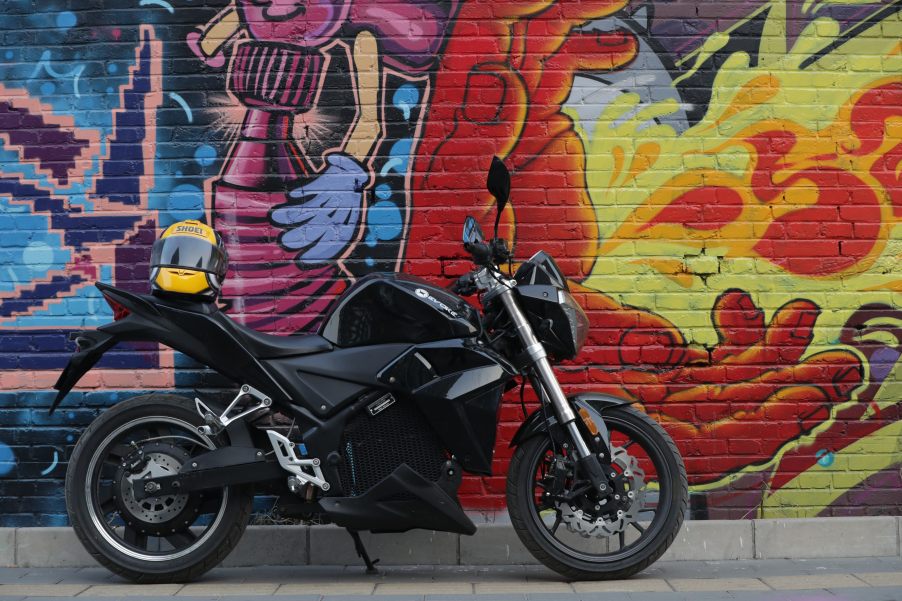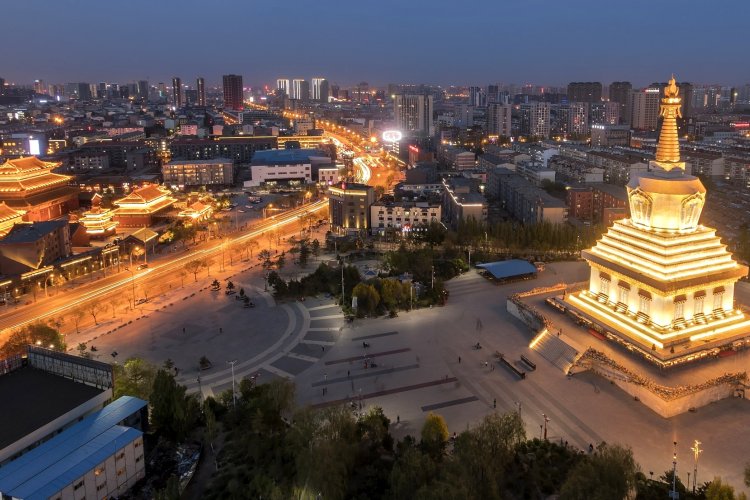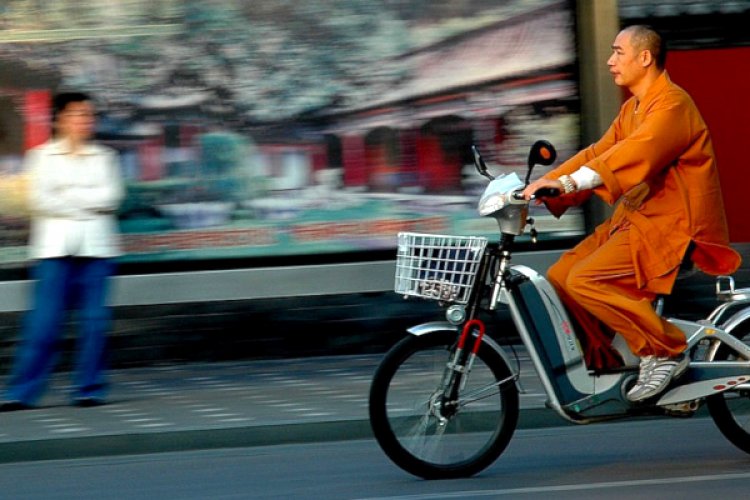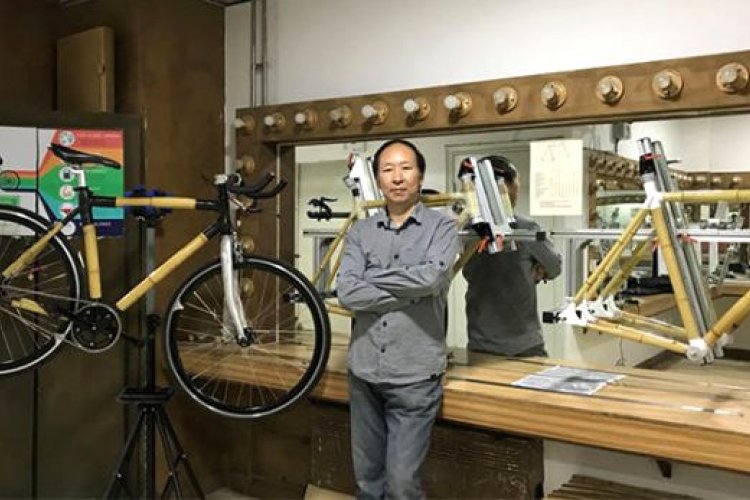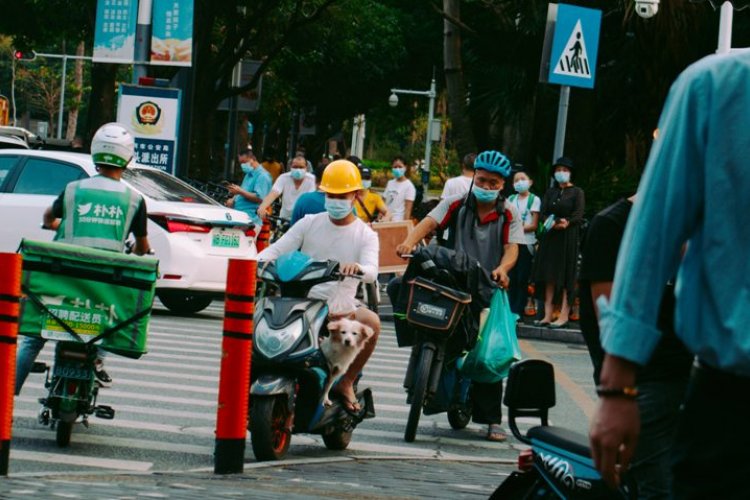Beijing-Based Evoke E-Motorbikes Making China's Transportation Green and Fast
This post comes courtesy of our content partners at TechNode.
Beijing-based smart motorcycle startup Evoke has grand ambitions to change the future of transportation, starting with China. Founded in 2012, the green transportation company has designed and built smart motorcycles that can go up to 81 miles per hour, powered completely by lithium-ion batteries.
A product born out of pain and passion
CEO and co-founder, Nathan Siy, is a fourth-generation Canadian Chinese who has been in China for the past 10 years. A motorcycle fan and serial entrepreneur, he saw the gap in the market for green transportation that not only addresses the congestion problem in big cities but also environmental concerns.

“Taxis sucked. The subway at that point didn’t reach very far,” Nathan described the transport system in Beijing when he first arrived, which only had two subway lines. “So that’s why I went over to the only thing that had flexibility – a little electric scooter.”
However, he wasn’t satisfied with the flimsy e-scooters that flooded the Chinese market. Nathan still craved the adrenaline rush that came with riding motorcycles. Unfortunately, ownership of gas-fueled motorcycles is strictly controlled in China, making it difficult to own and maintain one. So he decided to build his own electric motorcycle that escapes the traditional motorcycle restrictions but also provides the power.
After four years of designing, prototyping and testing, Evoke built and rolled out the Urban S in 2016 (pictured at top). The sleek Urban S has the look of a conventional motorcycle. Their patented Li-ion battery gives a 200km of range with one single charge of around 4 hours. The top speed on this model goes up to 81 miles per hour.
What makes the Urban S stand out is the 86 pounds per feet of torque with no clutch or gears, which provides fast acceleration but also makes it friendly to new riders. Evoke boasts that new riders can learn how to ride the Urban S in under 10 minutes.
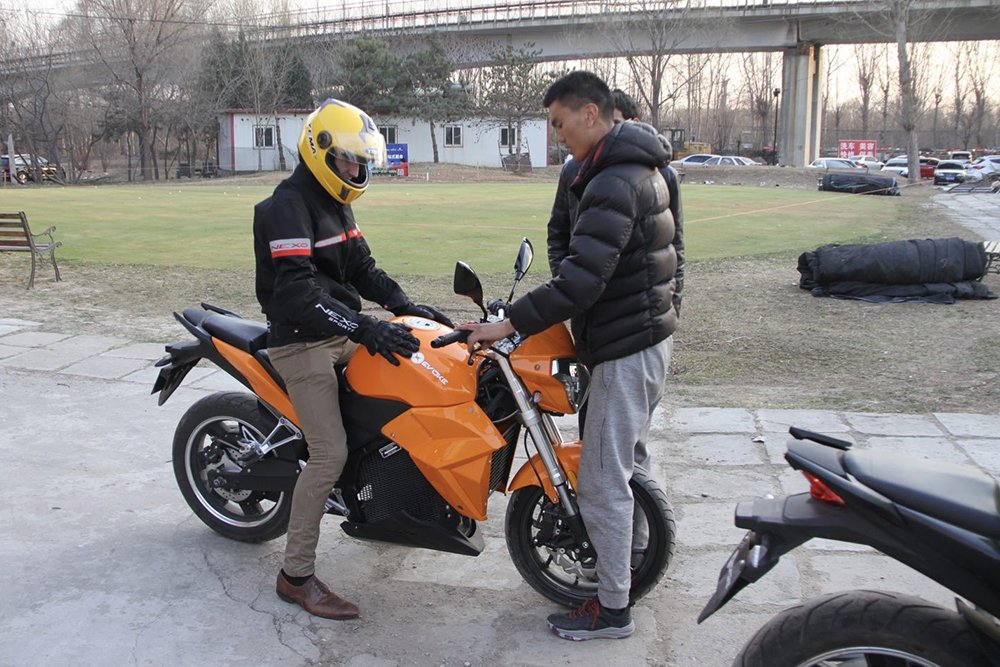
As the writer can attest, the Urban S is easy to learn how to ride. Small e-scooters can’t compare to the feeling of commanding the 180kg machine. However, for motorcycle riders, the Urban S may still be too much of an electric vehicle compared to the traditional ride.
“It accelerates really fast,” Oscar Thompson said. A motorcycle and e-scooter rider, he took the Urban S on a whirl. “I didn’t have to change gears, which is an odd feeling. And I kind of like the ritual of changing gears.”
Breaking into the market
There are 20 to 30 million e-scooters and e-bikes sold each year in China. With other innovative electric scooter brands in the market, such as Niu, Evoke has a hard but lucrative task ahead to convert some of that into e-motorcycle sales. Nathan does not think there is a direct competitor in the Chinese market for Evoke, which makes it an exciting and scary thing.
“Investors have also asked the question, ‘if you’re the only person doing it, are you sure that’s the right direction?’,” Nathan commented on being the market pioneer for e-motorcycles in China. “I’m very confident that it is the right direction.”
The customer segment that Evoke has attracted organically in China so far has been high-end, with the Urban S priced at around USD 7,000 (about RMB 49,000). These consumers are more likely to try new products and make purchases based on prestige and “face”. With e-motorcycles being a new product, consumer education and promotion are needed to establish the market. They are ramping up marketing activities, some of which include setting up a pop-up store in Beijing's Sanlitun and rolling out experience centers in Shanghai and Guangxi.
“Of the latest investment round, we’re allocating 50 percent [of that] to marketing,” Nathan explained. “Financially, it’s a big risk. But I think it’ll also pay off.”
Gearing up for the future
While China has accounted for the majority of historical sales, Evoke is also expanding into the US and European markets. Over the long term, their goal is to move into autonomous and connected vehicle solutions, using the electric components engineered as part of their e-motorcycles. Nathan explained that 80 percent of the time, drivers sit alone in a four-person vehicle. This is a waste of space and resources.
“We’re effectively able to utilize the power train we have in our bikes today over a multitude of platforms,” Nathan outlined how Evoke may be able to realize their long term goal. “What we eventually want to move into, is the three-wheel driving [pod technology]. I personally believe that four-wheel vehicles are too clunky.”
Evoke’s vision has attracted some investors. After a previous USD 1 million investment round that supported the R&D of the motorcycles, they’re now at 60 percent of the latest investment funding goal. Evoke is also fast expanding, hiring staff in multiple divisions.
“[Failing fast] has been so important and critical for our team and company, that we ended up spraying it on the wall,” Nathan said about the graffiti on the Evoke office wall. On the possibility of risks and failure, Nathan is optimistic and fearless. He believes in the concept of “failing fast,” that is being entrepreneurial and pivot fast if something doesn’t work out.
And with that determination, Evoke seems to be moving full-steam ahead.
Photos courtesy of Technode, Lizzie Liu

